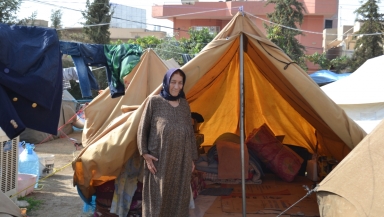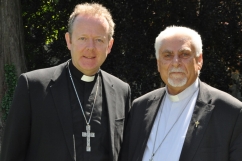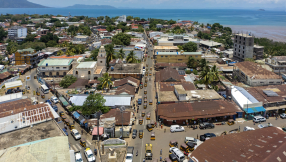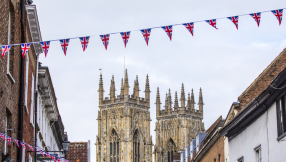
Christians forced to flee Islamic State last year are still living in refugee camps and are losing hope of ever returning home, a Syriac Catholic has reported from Irbil.
Mosul-born Chaldean Catholic, Sahar Mansour, is now living in the refugee camp at Ankawa, near the Kurdish capital of Irbil, after being driven from his home by militants last year. There are more than 1,700 Syriac Catholic families living in the camp, ministered to by priests including Father Bashar Kthea, who himself fled from Qaraqosh last August.
Qaraqosh was once home to Iraq's largest Christian community. It was overrun by Islamic State jihadists on August 6, 2014.
Writing on behalf of Father Kthea to Catholic News Service, Mansour said there is growing discontentment and frustration in the camp, particularly among young people, for whom there are few prospects.
"The majority of the young people are thinking to not stay in Irbil anymore and they do their best to flee," Sahar said.
"They tell me things like there is no future here and they can see no future, [they say] that 'we lost one year from our life and that life is important, valuable and it is worth living, but not to live it like this.'"
Refugees are living in incredibly cramped conditions, with multiple families often sharing tiny living spaces with one another. With few belongings and no money, they are forced to rely on overseas aid, as well as the church.
"When you talk to Fr Bashar, you notice that he is fatigued, exhausted," Sahar said.
"You can easily notice the bitterness in Fr Bashar's face or in his voice, but he works with total dedication.

"He always says that we are created in order to work, that we are soldiers of Christ, that we want to cultivate love and peace, that we want future generations to live better than we lived, and that we do not want to inherit the culture of violence."
In an interview with Catholic charity Aid to the Church in Need last year, an elderly Christian woman forced to flee to Ankawa from Mosul said that she and her fellow refugees were not angry with God, despite their traumatic experiences.
"We've lost everything. The worst thing is that we don't know when or whether we will be able to return to our homeland," she said.
"But none of us is angry at God. Fortunately we are all still alive."















